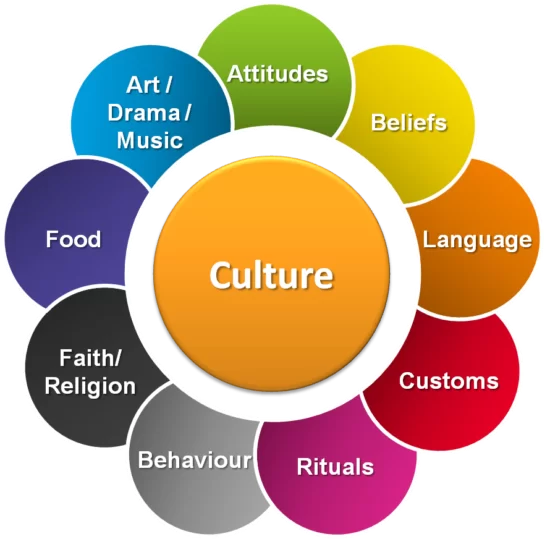In the verdant cradle of West Africa lies Liberia, a nation steeped in an intricate tapestry of cultural traditions and an emerging modern identity that coalesce in a symphony of sounds, colors, and communal experiences. This rich cultural panorama unfolds like the pages of an age-old manuscript, where each note, rhythm, and gesture tells a story. Within the framework of cultural relativism, the unique appeal of Liberia’s cultural ethos can be both examined and appreciated, revealing the intersections between tradition, music, and contemporary identity.
The culture of Liberia is as diverse as its topography, featuring over sixteen ethnic groups, each contributing distinctive practices and beliefs to the national mosaic. At the heart of this cultural diversity lies traditional music, a powerful conduit for communal expression that echoes the aspirations, struggles, and resilience of the Liberian people. Traditional music, often regarded as the soul of Liberia, encompasses a myriad of genres including folk songs, drum rhythms, and ceremonial chants that have been preserved through generations. In cultural relativism, these musical expressions are not merely art forms but rather reflections of the values, norms, and histories intrinsic to the society that produces them.
The rhythmic pulse of the djembe, a goblet-shaped drum, resonates with an ecstatic fervor in Liberian communities, serving as both a means of storytelling and a vehicle for social commentary. Drumming sessions, often held during festivals and communal gatherings, are imbued with communal solidarity, facilitating both bonding and identity formation. The drumbeat serves as a communal heartbeat, conjuring the collective memory of ancestors and imparting wisdom across the ages. It is within this communal setting that the Liberian narrative is woven together—historical events, moral lessons, and significant life transitions find their voice through rhythm.
As the cultural context evolves, so too does the interpretation and manifestation of music within Liberia. The nexus between traditional forms and modern influences is palpable, most notably in the burgeoning fusion genre that encapsulates the dynamic landscape of contemporary Liberian music. Artists such as Sekoubatou and the young innovatives within the hip-co genre are reshaping the musical landscape by infusing contemporary themes with traditional sounds, illustrating the dialectical relationship between tradition and modernity. This fusion acts like an intricate weaving of old and new, a metaphor for the identity of a nation straddling two worlds. In a sense, one could argue that the musical evolution mirrors the collective striving for a renewed identity that is both distinctly Liberian and globally resonant.
Analyzing the cultural scene through the lens of cultural relativism invites an appreciation for the ways in which Liberians adapt and reinterpret their heritage within a globalized framework. While the influx of Western pop culture presents challenges to the preservation of traditional practices, the ingenuity of contemporary artists showcases a resilient spirit that seeks to harmonize the indigenous with the universal. The reinvigoration of traditional instruments amidst modern contexts serves as a testament to the versatility and vibrancy of Liberian culture. In the act of adaptation, there exists a recognition that the essence of culture is not static, but rather a dynamic interplay between the past and the present.
Music in Liberia is also inextricably tied to social issues and collective movements. Many contemporary artists wield their music as a platform for advocacy, addressing pressing societal concerns such as gender equality, youth empowerment, and the aftermath of civil strife. The poignant lyrics and evocative melodies resonate with audiences, serving to foster dialogue and reflection on critical topics. The role of music as a catalyst for social change reinforces the idea that culture is not merely a reflection of society but an active participant in shaping it. In this regard, the complex interplay between tradition and modernity is emblematic of a society grappling with its past while forging a hopeful future.
While examining the cultural fabric of Liberia, it is equally essential to navigate the ramifications of global influences on local practices. The influx of technology and global media may lead some to argue that traditional values are eroding. Yet, within this complex landscape, various subcultures are emerging, often revitalizing interest in folk traditions or enhancing the accessibility of traditional narratives through digital mediums. Thus, the assertion that culture is endangered may overlook the adaptive capacity of Liberians to integrate and negotiate their identities amidst changing realities. This adaptation—viewed through a cultural relativist lens—emphasizes the fluidity of cultural expression and the constant evolution of identity.
In conclusion, the culture of Liberia, particularly in the realms of traditional music and modern identity, offers a compelling study of resilience, innovation, and continuity. The interplay between historical legacies and contemporary influences creates a vibrant cultural dialect that beckons recognition and respect. In this dance of tradition and modernity, Liberia stands as a testament to the assertion that culture is not simply a relic of the past but a living, breathing entity that reflects the spirit of its people. The unique appeal of Liberia’s cultural identity lies in its ability to navigate the seas of change while maintaining a steadfast connection to its roots, an intricate balance that sings a profound melody of hope, unity, and identity.
